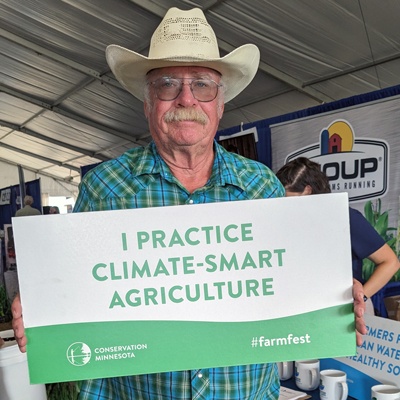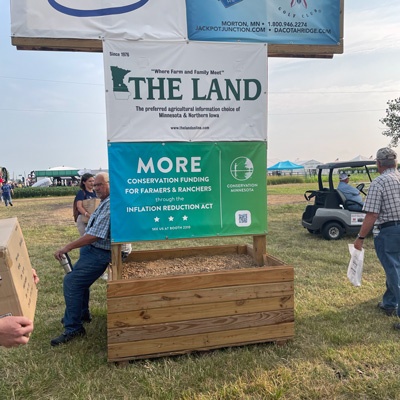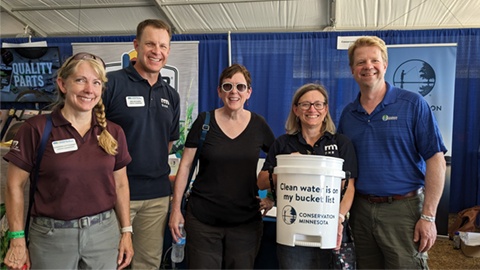Each August, farm families and agriculture leaders descend on 50 acres of farmland in Southeastern Minnesota’s Redwood County for Farmfest. During this three-day agribusiness and educational event, farmers learn from one another about the next big things in agriculture.

This year’s programming focused on climate-smart and conservation agriculture with the 2023 Farm Bill up for renewal, a multibillion-dollar piece of legislation that will be authorized in the next few months. The bill will include five years of funding for conservation programs, research, crop insurance, and more and has a major impact on food and farm livelihoods. As Congress is working on passing a Farm Bill that could bring even more key climate-smart investments to Minnesota, members of the US House Agriculture Committee hosted a listening session at Farmfest this year. They heard from local farmers, nonprofits, and lobby groups about issues like crop insurance for small producers, market access and monopolies, and the importance of conservation funding.

Conservation Minnesota hosted our very first booth at Farmfest this year, where we engaged with attendees about climate-smart agriculture funding that was significantly increased in the Inflation Reduction Act (IRA). As highlighted in the Star Tribune, we sponsored entrance banners advertising the popular increase in conservation funding through the IRA. You can find our priorities and more information about conservation programs in the Farm Bill and the IRA on our climate-smart agriculture page.
Aside from focusing on the Farm Bill, Farmfest’s programming highlighted US Department of Agriculture (USDA) agriculture policy issues, climate-smart practices for livestock producers, understanding and implementing these practices and policies, and perspectives on Minnesota ag and rural policy issues.

A lot of climate and outdoor legislative champions were present as well, including US Congresswoman Angie Craig, Governor Tim Walz, MN Senate Agriculture committee chair Aric Putnam, and Department of Natural Resources (DNR) Commissioner Sarah Strommen.

As farmers continue to be on the front lines of the climate crisis, increasing funds for climate-smart conservation practices in farming is needed and welcomed by farmers themselves. Stewarding the land for generations to come, agriculture and conservation leaders have a responsibility and the capability to make an impact with the renewed hope each growing season brings.
